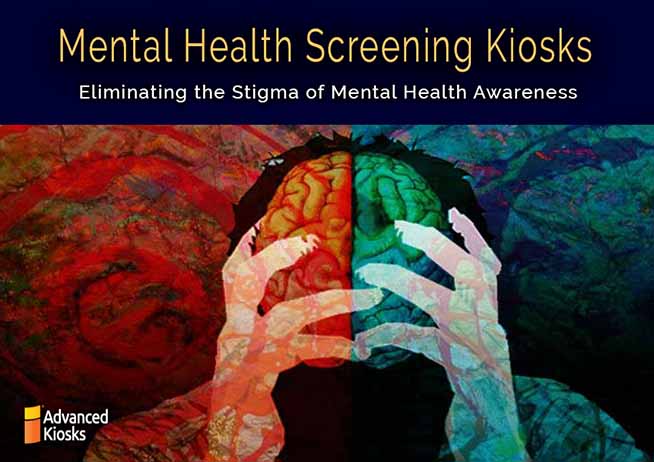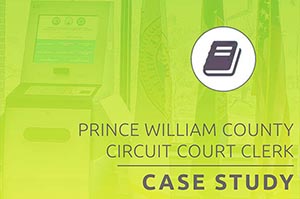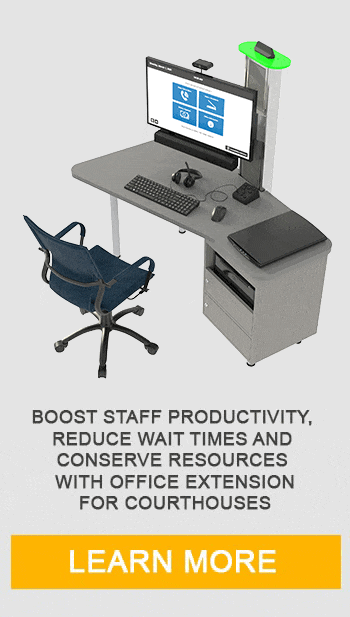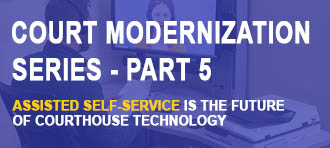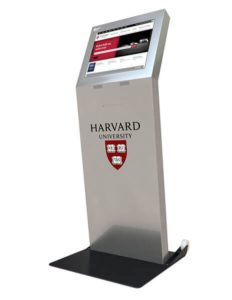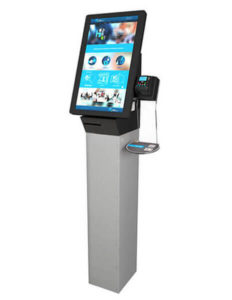In the drive to provide individuals with an accessible, medically responsible way to manage mental health concerns, the Onslow County Health Department of North Carolina and Screening for Mental Health is prescribing an innovative remedy: Mental Health Screening Kiosks for the public. These private self service kiosk stations provide users with guidance for diagnosing symptoms for themselves and for loved ones. Advanced Kiosks has partnered with SMH for the MindKare program which is now being adopted in a number of states nationwide.
If ever you’re not feeling quite like yourself, there’s one solid piece of advice to follow: Stay off the internet.
When it comes to seeking mental health services, the prevailing stigma can lead many people to follow their gut instinct and consult the web for answers. And while there’s no doubt that the net is bursting with a near-limitless supply of knowledge and resources for mental health questions, anyone who’s ever Googled their own symptoms has quickly discovered that this sort of “help” is often, well, far less than helpful.
Some may look at the search engine diagnosis and go into a five-alarm panic. Others will simply throw their hands up and decide that it’s all a bunch of over hyped click bait. Either way, the outcome for the patient is the same: more stress, more uncertainty, and more questions.
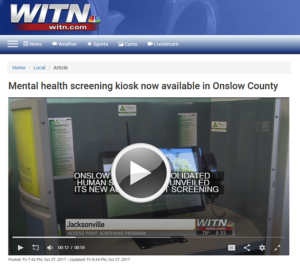 With the aid of our Countertop Computer Kiosk, the Onslow County Health Department has launched a program aimed at providing the community with 100% free self-screenings for symptoms of anxiety, depression, Post Traumatic Stress Disorder (PTSD,) and a host of other mental disorders.
With the aid of our Countertop Computer Kiosk, the Onslow County Health Department has launched a program aimed at providing the community with 100% free self-screenings for symptoms of anxiety, depression, Post Traumatic Stress Disorder (PTSD,) and a host of other mental disorders.
Setting out to make these kinds of self-screenings as commonplace as checking your blood pressure at the supermarket, Onslow County looks to use these kiosk access points to give citizens a discrete way to understand their symptoms and seek further treatment.
Speaking about the new access appoint treatment program, Onslow County Public Health Department Assistant Manager Sheri Slater expressed hope that the new kiosk would encourage people to take a more active role in their own mental health.
“With mental health services sometimes people just aren’t sure if they have a problem or what they should even do about their problem,” Slater remarked. Going on to say that she thought the intimate nature of the compact kiosk would give people the opportunity to explore treatment resources “in a very non-threatening environment.” The mental health screening kiosks provide a free, non-intimidating way for people to start the process of getting the help that they need in order to be well.
As we’ve explored before, MindKare kiosks like the ones developed through Screening for Mental Health represent an innovative way for communities of every sort to interact with legitimate diagnostic methods that have been developed by reputable mental health professionals.
Indeed, while online message boards and comment sections have no shortage of bad advice from well-meaning strangers and internet trolls alike, the programs developed by our partners at Screening for Mental Health are designed by a team of dedicated professionals from Philadelphia’s Department of Behavioral Health and Intellectual Disability Services (DBHIDS.)
Setting out with the threefold purpose of (1) Increasing awareness about common and treatable mental health conditions (2) Reducing the stigma surrounding mental health and asking for help, and (3) Increasing access to quality care through local treatment referrals, Screening for Mental Health and Advanced Kiosks are blazing a trail to bring kiosk solutions to places just like Onslow County.
To learn more about acquiring mental health screening kiosks from the MindKare Kiosk program, go to this link and contact SMH.

